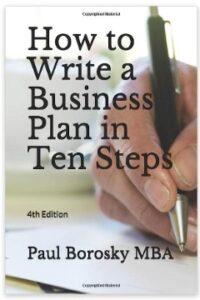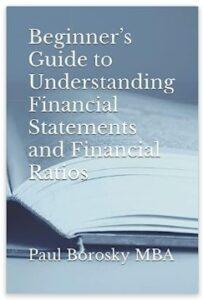How to Start A Catering Business
What does a catering business do?
A catering business provides food services for various events, from intimate gatherings to large-scale corporate functions. Caterers work closely with clients to design and execute customized menus that suit the event's theme, preferences, and dietary requirements. They handle the entire food preparation process, ensuring high-quality and delicious dishes for the occasion.

Caterers cook the food and handle its delivery and presentation at the event venue. They may set up buffet stations, arrange tables with plated meals, or provide food trays for guests to enjoy. During the event, caterers oversee food service, ensuring attendees a smooth and enjoyable dining experience. Beyond food preparation and service, catering businesses are also responsible for post-event cleanup. They dismantle buffet setups, clear tables, and tidy their catering areas, leaving the venue as they found it.
Catering businesses cater to various events, including weddings, birthday parties, corporate meetings, and conferences. Their ability to create culinary delights and deliver exceptional service makes them indispensable partners in making events memorable and successful.
What are the steps to starting a catering business from home?
Starting a catering business from home involves several essential steps to ensure a successful venture:
- Create a Specialized Menu: Select a limited number of main entrées, appetizers, salads, and desserts to specialize in and excel at providing high-quality, consistent dishes.
- Commissary Selection: Determine if you need to prepare food in a commercial kitchen (commissary) due to local regulations. If allowed, operating from home can save costs.
- Develop an Advertising Plan: Decide the best advertising channels for your catering business, such as online platforms, websites, blogs, mailers, or word-of-mouth referrals. Have a well-thought-out advertising strategy in place to reach your target audience effectively.
- Build Event Venue Partnerships: Develop a network of event venues to offer clients suitable locations and receive referrals from these places, enhancing your business's reputation.
- Obtain Required Licenses: Check with local government agencies to determine the necessary business licenses and permits for operating a catering business from home.
- Draft a Business Plan: Write a comprehensive business plan or hire a business plan writer to document your catering business's goals, strategies, target market, financial projections, and operational details. A written plan fosters organization and alignment among team members.
By following these steps and having a well-structured plan, aspiring caterers can confidently launch their home-based catering business and set themselves up for long-term success.
How much money do I need to start a catering business?

Funding a catering business requires a significant investment, and costs can vary depending on various factors. Here are some categories and cost ranges for starting a catering business:
- Catering Business Buildout: If you choose a commercial operation space, buildout costs can range from $25,000 to $90,000, depending on the size and scope of the catering business. Renovations, equipment installation, and interior design contribute to these expenses.
- Operating Equipment: Essential equipment includes a van for food transportation, containers for food storage, warming equipment, and supplies for preparation and cleanup. Costs for operating equipment can range from $5,000 to $40,000, depending on the scale and quality of equipment required.
- Advertising Costs: Advertising is crucial for attracting clients and building brand awareness. Monthly advertising costs can range from $300 to $10,000, depending on your budget and target market. Combining online advertising, vital blogging, and active social media presence in the $ 500 to $ 1,000 range can be effective for most catering businesses.
Additional costs may include permits and licenses, insurance, staffing expenses, ingredient costs, and initial inventory purchases. It is essential to conduct thorough research and create a detailed business plan to estimate the total startup costs accurately for your specific catering business.
Remember that funding a catering business is a significant investment. Still, with careful planning and strategic allocation of resources, it can lead to a rewarding and profitable venture in the thriving catering industry.
Do I need a business plan for a catering business?
Yes, having a business plan is highly recommended for a catering business. A well-structured business plan serves as a roadmap for your catering venture, outlining your goals, strategies, and operational details. It provides a comprehensive overview of your business, helps you anticipate challenges, and ensures you are well-prepared to succeed in the competitive catering industry. Here are some key reasons why a business plan is essential for your catering business:
- Clarifying Goals and Objectives: A business plan helps you define your catering business's mission, vision, and specific goals. It outlines what you want to achieve and how you plan to get there.
- Understanding Market and Competition: Through market research, a business plan allows you to analyze your target market, understand customer preferences, and assess your competition. This information is critical for positioning your catering services effectively.
- Financial Projections: A business plan includes financial projections, such as startup costs, expected revenues, and expenses. It helps you understand the financial feasibility of your catering business and secure funding if needed.
- Securing Funding: A well-prepared business plan demonstrates your professionalism and commitment to your catering business if you require financing from lenders or investors. It increases your chances of obtaining the necessary funding.
- Guiding Business Operations: Your business plan acts as a guide for day-to-day operations. It helps you stay focused on your objectives and make informed decisions.
- Adapting to Challenges: By anticipating potential challenges and risks, a business plan enables you to develop contingency plans and be better prepared to navigate uncertainties.
Whether starting a new catering business or looking to expand an existing one, a business plan is an invaluable tool that can significantly contribute to your success and growth in the catering industry.
Hey all,
Thanks for reading Quality Business Plan's blog. What are your thoughts about starting a catering business in your area? Please share your thoughts and experiences in our comment section below.
Paul
Author: Paul Borosky, Doctoral Candidate, MBA.
Owner of: Quality Business Plan
Date: 7/27/23